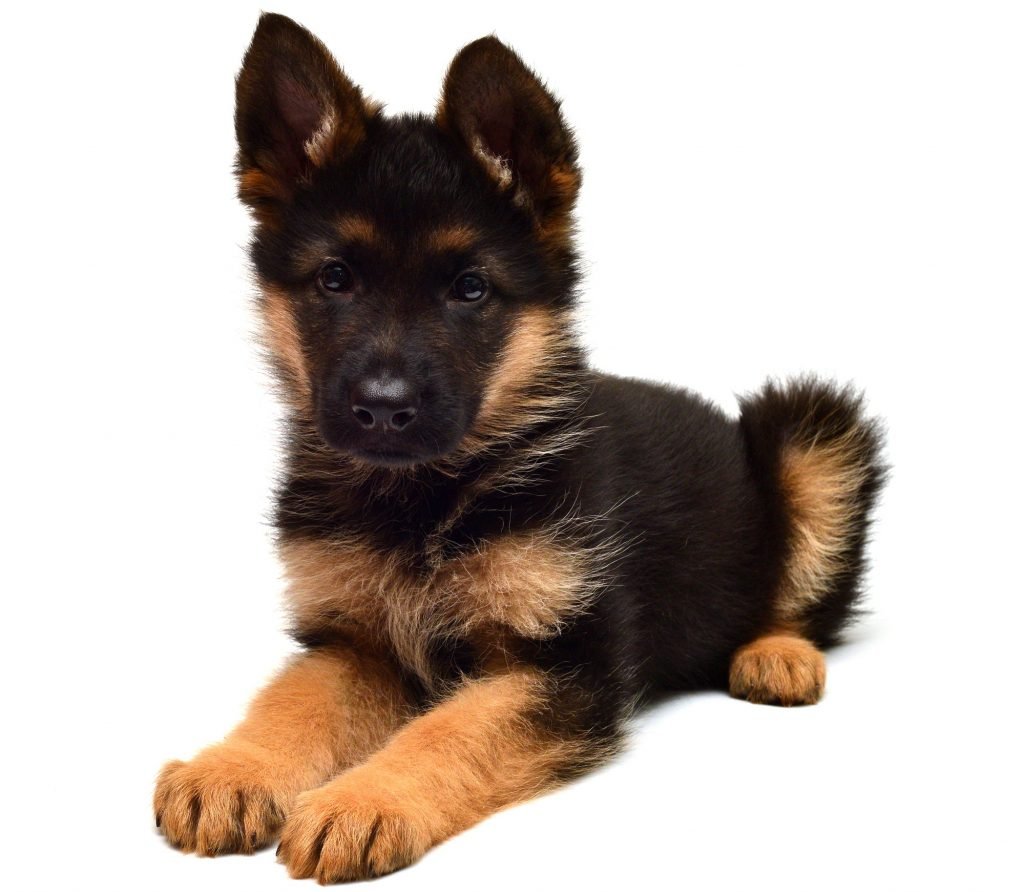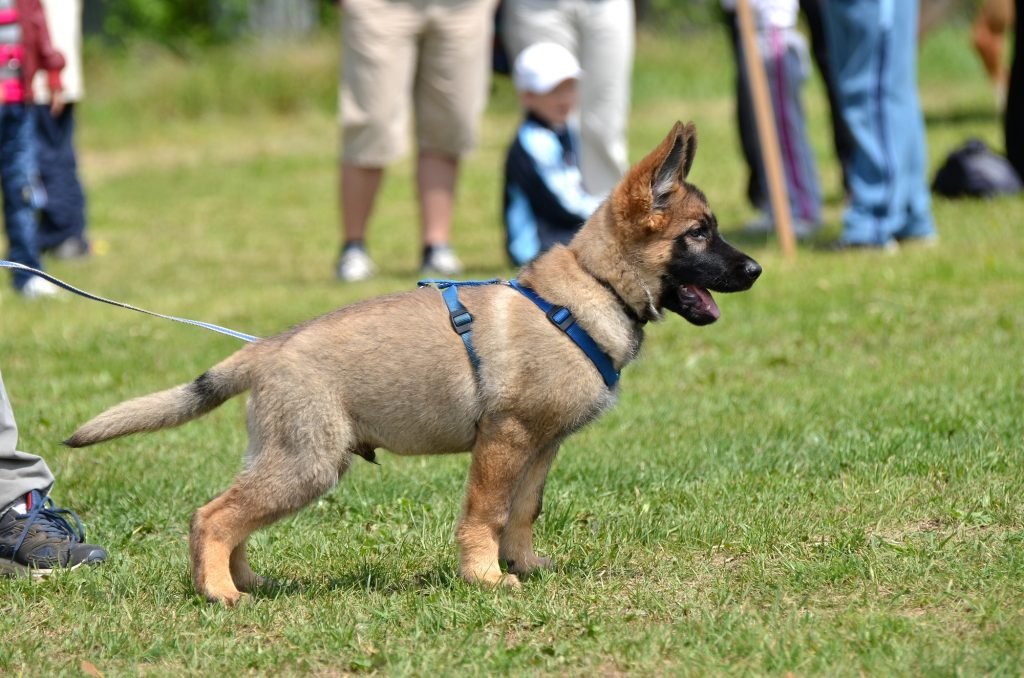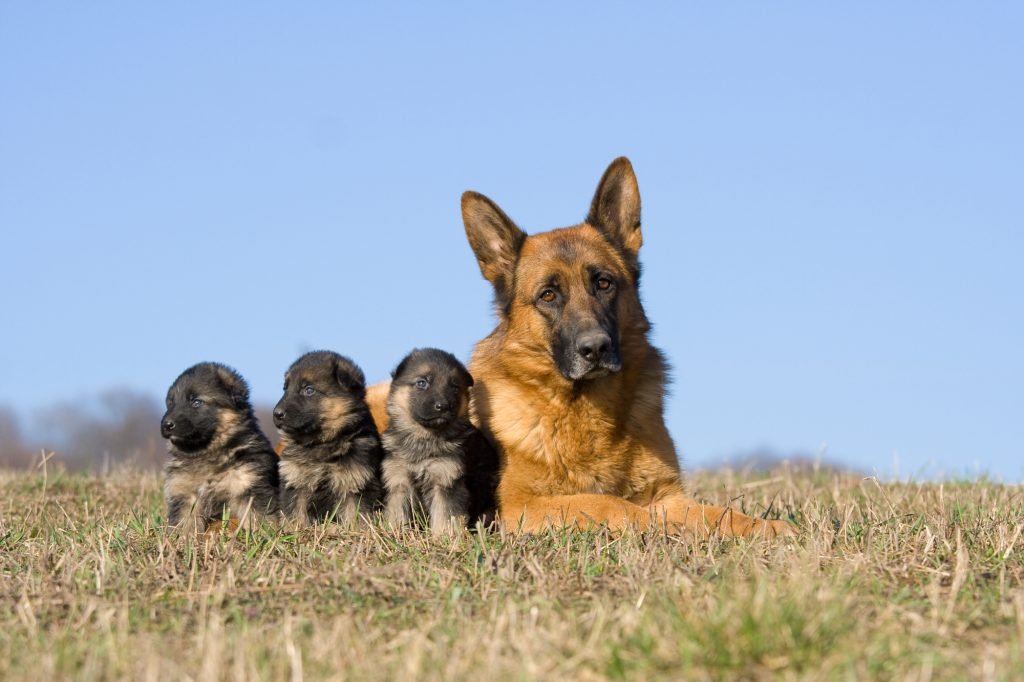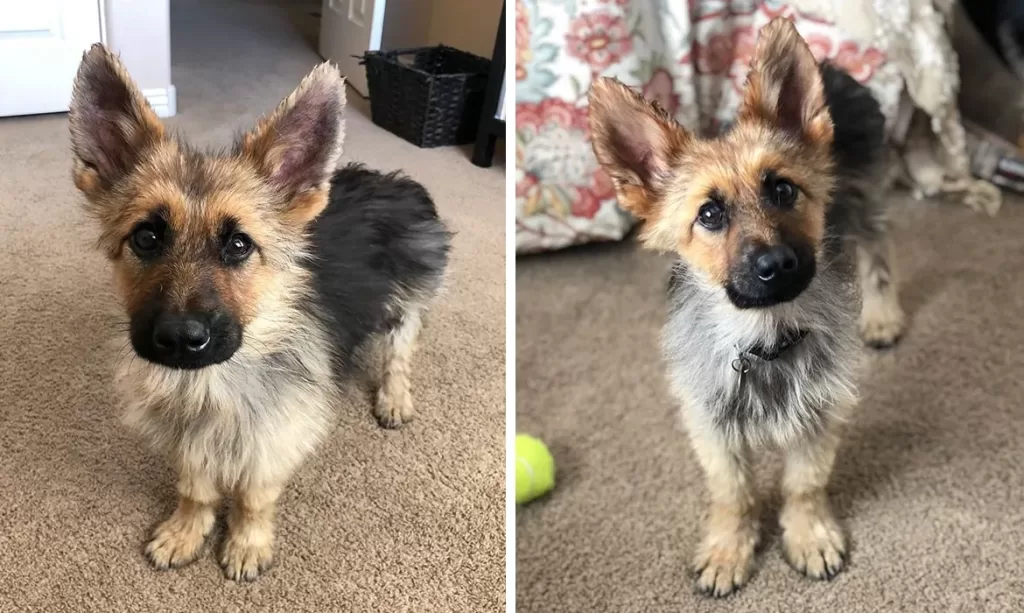Full Grown Dwarf German Shepherd may be very rare but for the people who love puppies, these dogs are a super choice.
| Traits | Range |
|---|---|
| Height | 10–20 inches |
| Weight | 35–50 pounds |
| Lifespan | 3–4 years |
| Coat Colors | Tan, black, sable |
| Suitability | Active families, experienced owners with patience for training |
| Temperament | Loving, loyal, can be aggressive if not properly trained and socialized |
Table of Contents
Most people are dog lovers, but we definitely can’t resist puppies! Unfortunately, they don’t stay as little fidos for long. Like everyone else, they’d have to grow up, which is very true for a large breed like German Shepherds (GSD).
But did you know that GSDs can stay small due to a condition called Pituitary Dwarfism?
It may make dogs look like cute puppies because of their size, but it’s actually a severe and incurable disease that can cause devastating health consequences. For some, it can even cause death.
If you’ve seen pictures of adorable-looking adult German Shepherds that look like perpetual puppies and you’re interested in having one, or maybe you already have a GSD who has dwarfism, and you want to know more about it, then we got you covered. Stay with us and keep scrolling.
What is Dwarf German Shepherd or dwarfism in German Shepherds, and how do dogs get it?

A German Shepherd with dwarfism can look like this their whole life
German shepherds with dwarfism is a genetic disorder that causes dogs to stay small. They are totally proportionate, which means that their legs and head are in proportion to their bodies. This gives them the appearance of being a puppy, even when they are fully grown.
Physically, canines have fox-like facial features, but GSDs with dwarfism stay much lighter in weight and shorter than a typical example of the breed. Some people call these dogs miniature German Shepherds.
Also Read:
What is German shepherd double coat: Single Coat vs Double Coat
When do German shepherd ears go up naturally?
White German shepherd from Puppy to Pal: The Complete Guide.
The only way for a dog to get Pituitary Dwarfism is for two carriers of the genes that cause the disorder are bred together. If one parent has the gene and the other doesn’t, the offspring won’t have the disease, though they can be carriers.
While it’s relatively uncommon to see a dwarf dog, the gene for Pituitary Dwarfism is thought to be carried by between 10 and up to 33 percent of German Shepherds. It’s a recessive gene, which means that two parents must be carriers in order for any offspring to inherit the condition.
If two positive carriers are bred together, about half of the offspring will be carriers, and a fourth of the pups could be dwarfs.
This autosomal condition is inherited in other breeds, too, not just German Shepherds. It can impact Australian Shepherds, Golden Retrievers, Labrador Retrievers, Spitz, Miniature Pinschers, Dachshunds, Weimaraners, Basset Hounds, Corgis, and wolfhound breeds like the Czechoslovakian Wolfdog, the Saarloos Wolfdog, and the Karelian Bear Dog.
Effects: How does dwarfism impact a German Shepherd?
As puppies, it’s difficult to tell the difference between a dog that is affected by the disease and one that isn’t. Only as they grow and develop does dwarfism become apparent.
Most often, vets notice this Pituitary Dwarfism in canines when they’re around 3 to 5 months because of skin and hair abnormalities, and of course, growth deficiency.
And the effects aren’t just physical. They also have problems with their liver and kidneys, which can cause lifelong health concerns. They can also have neurological issues that impact the spinal cord and can cause paralysis, or worse, death.
In dogs with this disorder, the pituitary gland is affected, reducing the hormones that it produces. This has an impact on thyroid function, hair growth, reproduction, and pain receptors in the brain.
When breeds who have dwarfism are not treated, it can mean a shortened life span, which is around four or five years. They also tend to have a less robust immune system, which makes them prone to getting sick from other illnesses.
Carriers who have the gene but aren’t impacted by the disease look just like any other German Shepherd, which is why conducting a blood test before breeding two dogs together is so important.
Having a Dwarf German Shepherd as a family pet
German Shepherds with Pituitary Dwarfism can still make excellent companions, but you’ll definitely face some challenges that you might not have with other GSDs.
Due to the way the condition impacts the pituitary gland, dogs can have personality issues like aggression or anxiety.
Some pups may also be slow or dull because of the reduced hormones in their bodies. Miniature German Shepherds will usually need lifelong supplements with things like fish oil, and perhaps hormone supplementation as well.
If your GSD friend experiences pain when they play or move too much, you may need to limit their activity and install things like ramps and rugs to help them get around your home comfortably.
Exercise needs of a dwarf German Shepherd

Because every dog is affected differently, it’s impossible to say what kind of physical activities your dog will have.
You should always chat with your vet to know what your pup can handle and what they should avoid. Your vet will likely need to do a thorough assessment to get a better idea of the specific do’s and don’ts for your pooch so they can give you guidelines.
That said, since many dogs have health issues that impact their spine, any exercise should be conservative until you know what your pup can handle.
Swimming can be a good way to exercise dogs that suffer from spinal issues, though you’ll need to keep them in shallow areas until you know how they handle swimming.
After that, you should always keep an eye on your dog to make sure they’re not overdoing it. Any limping or favoring a part of their body could be a sign that they’re in pain. If that’s the case, they’ll need to take it easy and maybe even be treated with ice for a little while to keep them comfortable.
Special challenges with grooming and shedding with a dwarf German Shepherd dog
German Shepherds with Pituitary Dwarfism keep their puppy coat longer than other dogs. But within their first year, it will begin to fall out, and the dog will become bald except for their head and lower legs. Their skin can turn dark and scaly, as well.
Treatment for the disease can help with hair loss and skin issues, but their coat will never be as thick as a healthy German Shepherd.
For those dogs who struggle with hair loss, you can provide a sweater in the winter to keep them warm, and sunscreen in the summer to protect their exposed skin.
Because they have lower immunity, they can be prone to skin infections that can be deep and difficult to address.
Facing the challenge of owning a Dwarf German Shepherd

Caring for a German Shepherd or any dog with a health condition like Pituitary Dwarfism is never easy, but it’s possible. With the right treatment plan, medications, and care, you can give your furry buddy a happy life.
The good news is that dwarfism is totally preventable. It only requires that the parents or breeding stocks go through genetic testing before the mating process to make sure that the disorder or any other illness isn’t being passed along from generation to generation.
Do you have a Miniature German Shepherd or another breed with dwarfism? Anything else to share with fellow paw parents about pets with this kind of health problem? Share your stories by commenting below.
FAQs on Dwarf German Shepherd
What are the causes of dwarfism in German Shepherds?
There are two main causes of dwarfism in German Shepherds:
Pituitary dwarfism: This is the most common type of dwarfism in German Shepherds. It is caused by a defect in the pituitary gland, which is responsible for producing growth hormones.
Achondroplasia: This is a less common type of dwarfism in German Shepherds. It is caused by a defect in the growth plates in the bones, which prevents the bones from growing to their full length.
What are the health problems associated with Dwarf German Shepherds?
Dwarf German Shepherds are more prone to certain health problems than standard German Shepherds. These problems include:
Joint problems: Dwarf German Shepherds are more likely to develop joint problems, such as hip dysplasia and elbow dysplasia.
Breed-specific health problems: Dwarf German Shepherds are also more likely to develop some of the breed-specific health problems that affect standard German Shepherds, such as allergies, diabetes, and heart disease.
Shorter lifespan: Dwarf German Shepherds typically have a shorter lifespan than standard German Shepherds. They typically live for 8-10 years, compared to 10-13 years for standard German Shepherds.
How much do Dwarf German Shepherds cost?
The cost of a Dwarf German Shepherd can vary depending on the breeder and the dog’s pedigree. However, they typically cost more than standard German Shepherds.
Where can I find a Dwarf German Shepherd?
Dwarf German Shepherds are not as common as standard German Shepherds, so they may be more difficult to find. However, there are some breeders who specialize in breeding Dwarf German Shepherds. You can also find Dwarf German Shepherds for adoption through some rescue organizations.
Wrapping Up
In conclusion, the full-grown dwarf German Shepherd is a unique and fascinating breed. While they may be smaller than the standard German Shepherd, they make up for it with their big personalities and loyalty. It’s important to remember that dwarfism in dogs can come with some health challenges, so responsible breeding and regular vet check-ups are crucial.
If you’re considering bringing a dwarf German Shepherd into your family, be prepared to provide them with the care, love, and attention they need. These pint-sized pups can be wonderful companions for the right owner, and with the right care, they can live happy and fulfilling lives. Remember to always do your research and choose a reputable breeder or consider adopting from a rescue organization to give a loving home to a dwarf German Shepherd in need.

